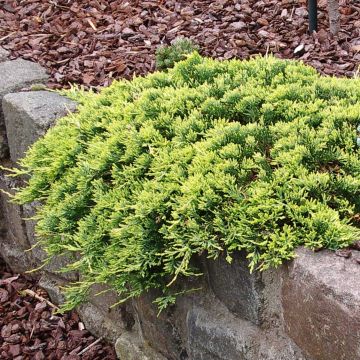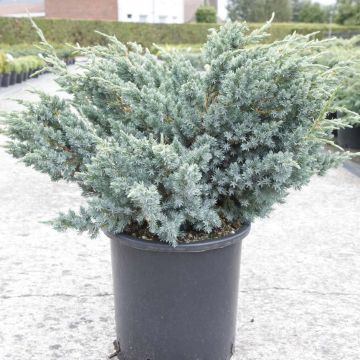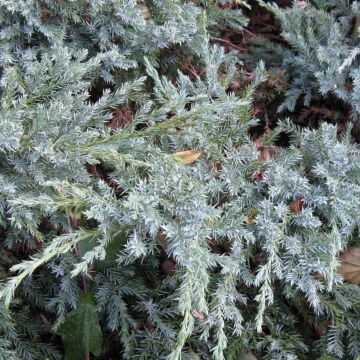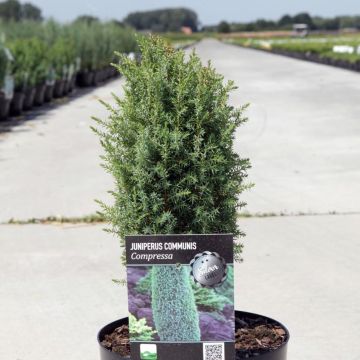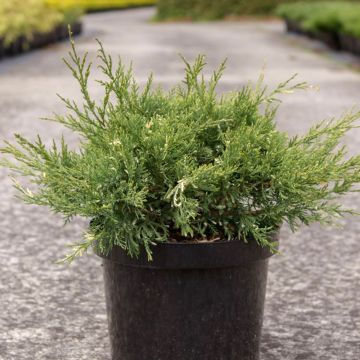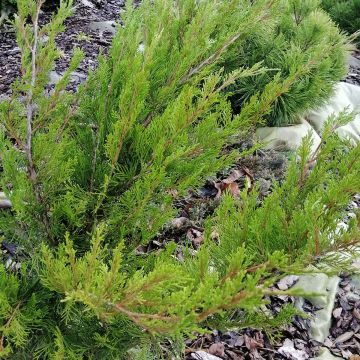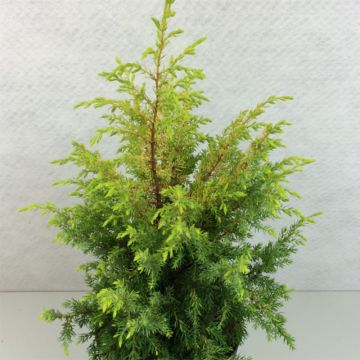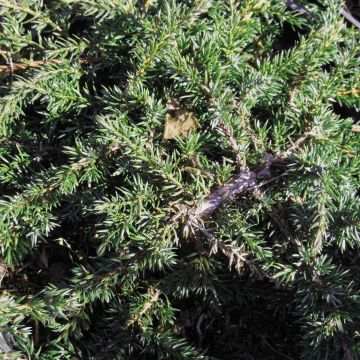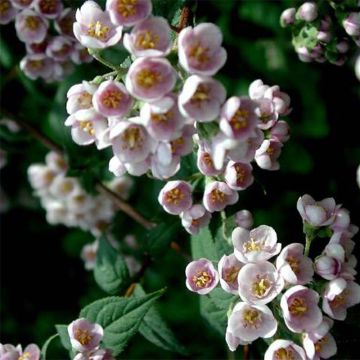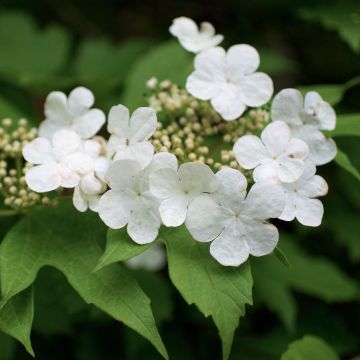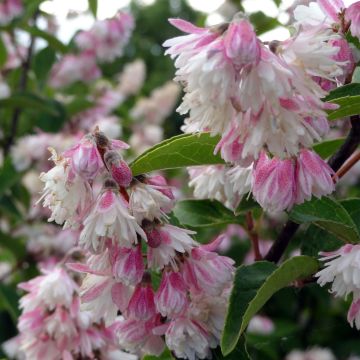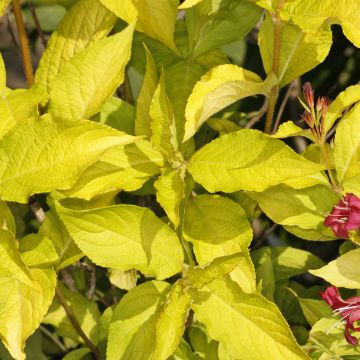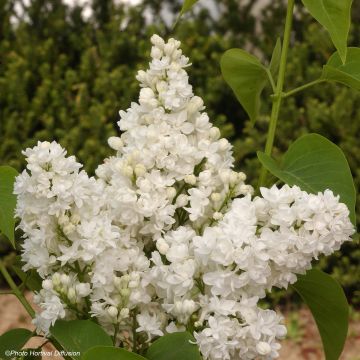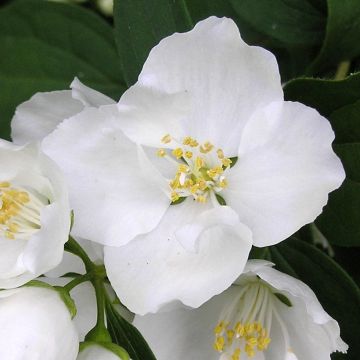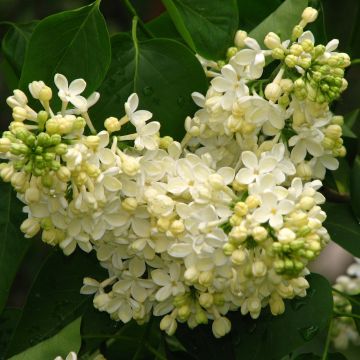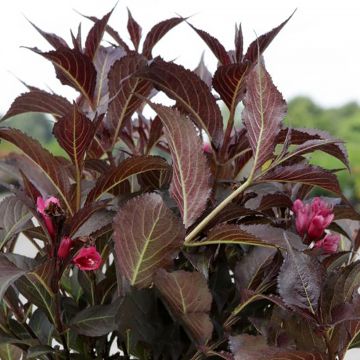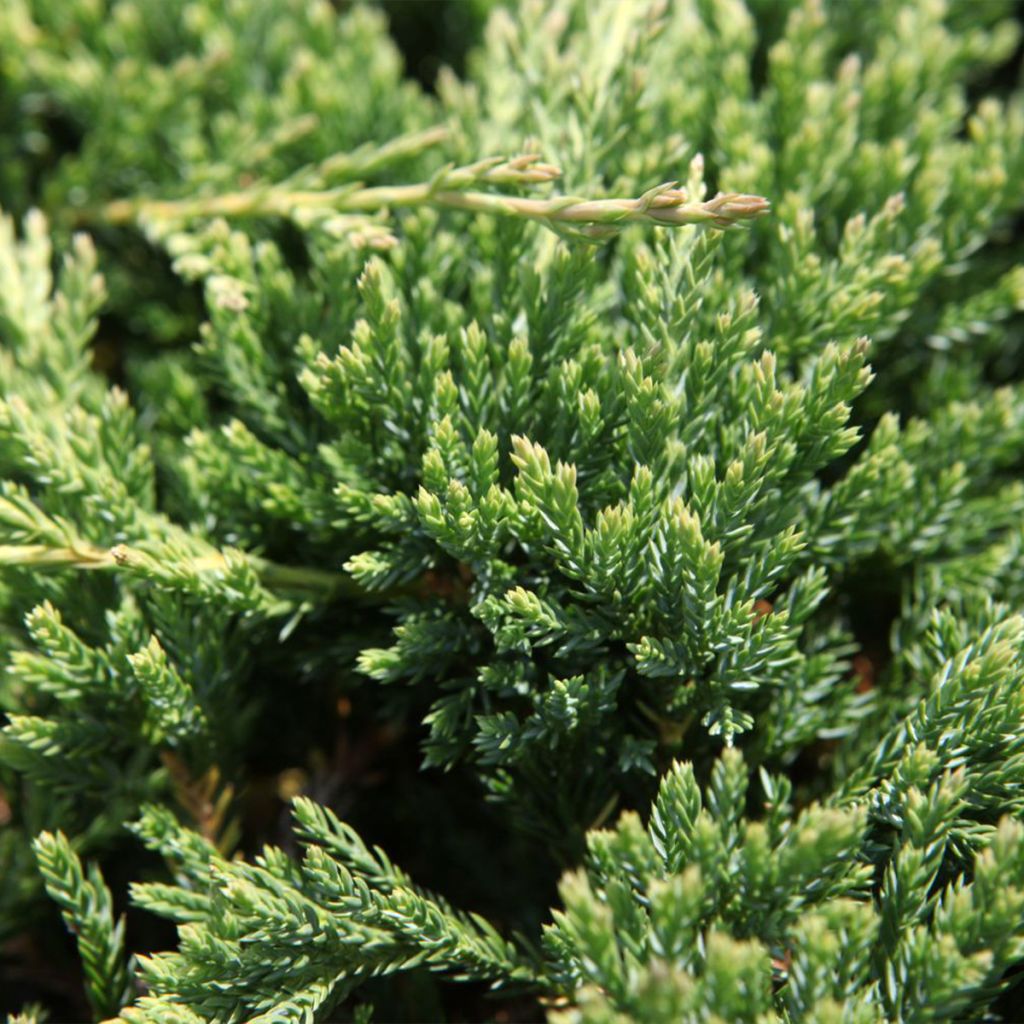

Juniperus horizontalis Prince Of Wales
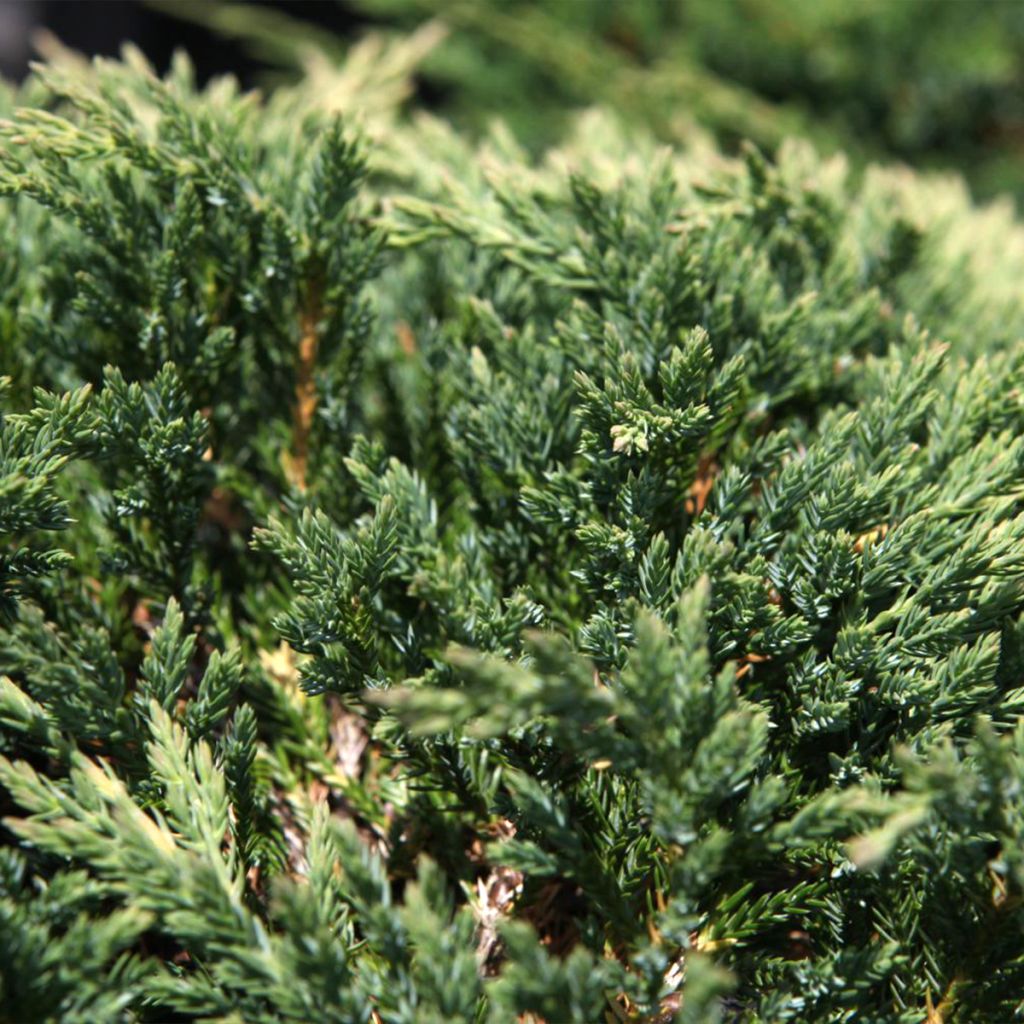

Juniperus horizontalis Prince Of Wales
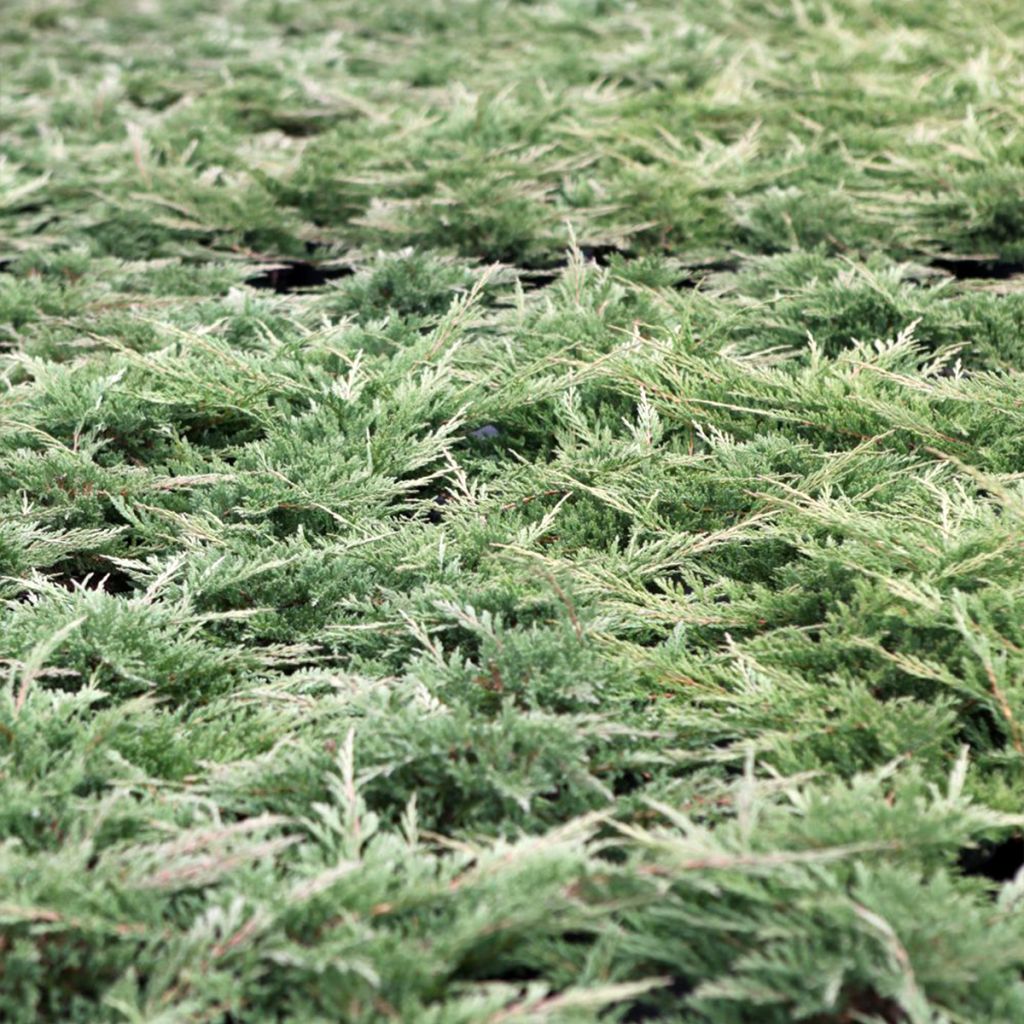

Juniperus horizontalis Prince Of Wales
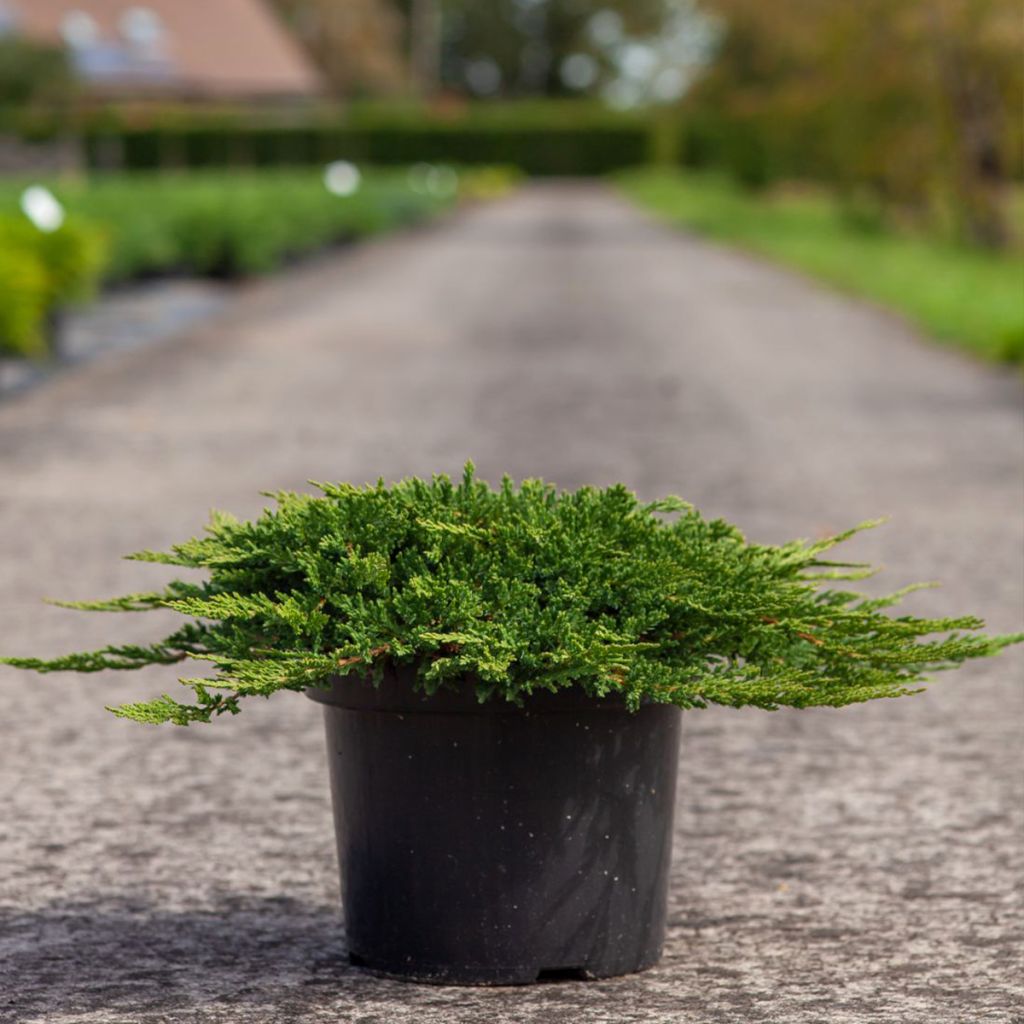

Juniperus horizontalis Prince Of Wales
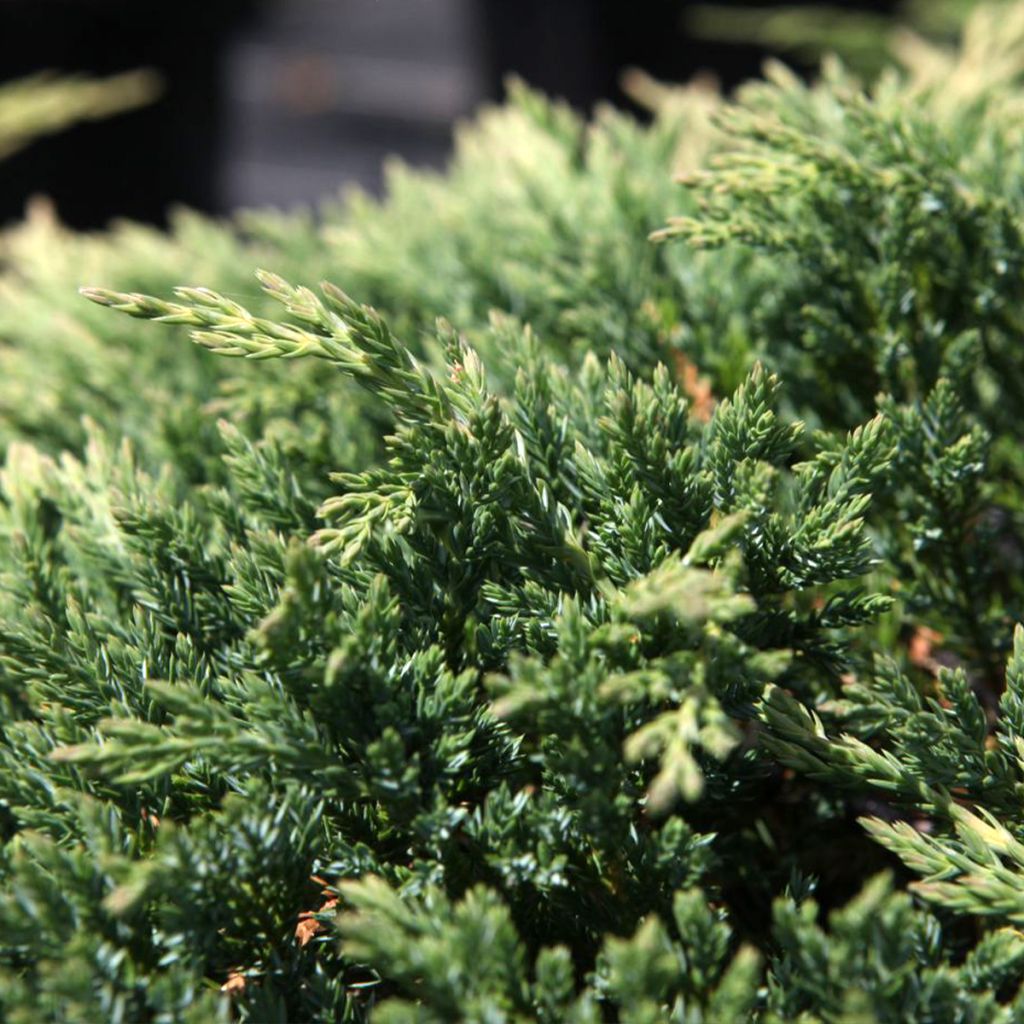

Juniperus horizontalis Prince Of Wales
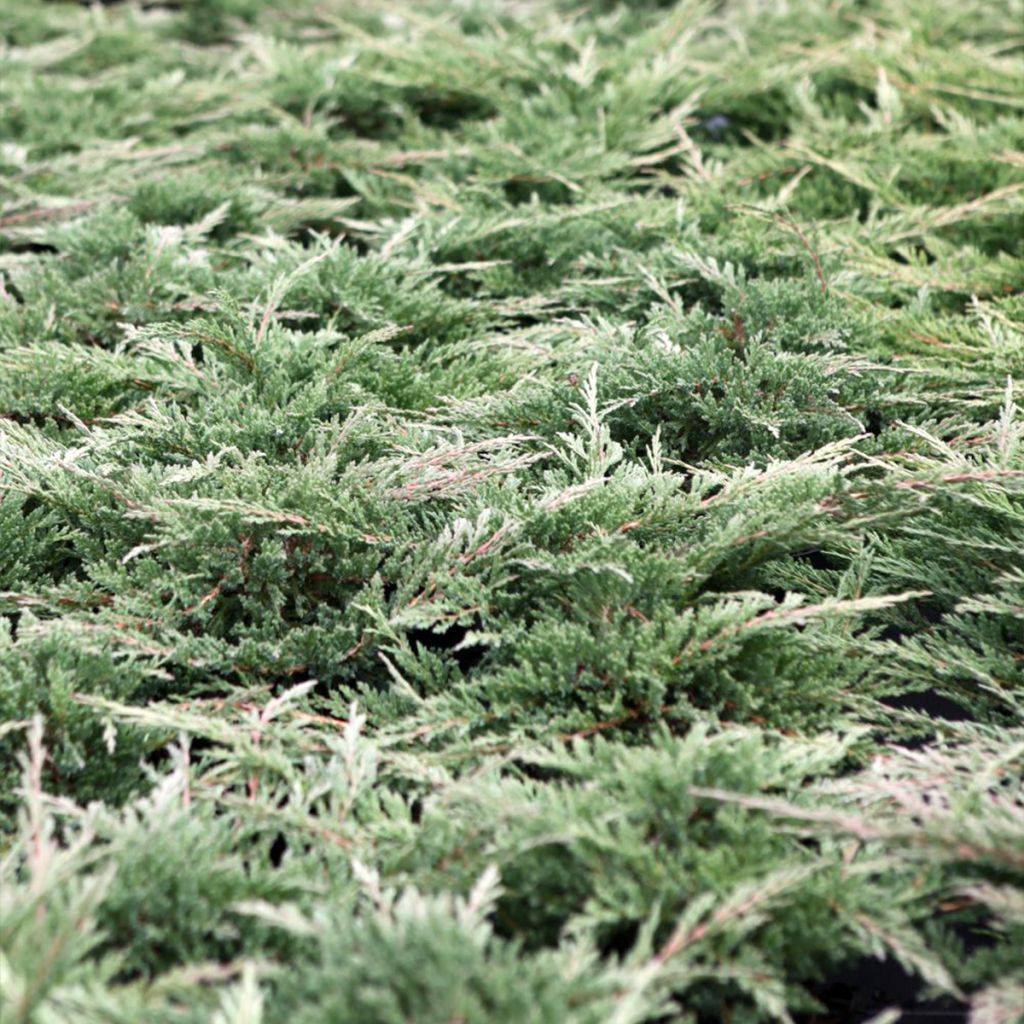

Juniperus horizontalis Prince Of Wales
Juniperus horizontalis Prince Of Wales
Juniperus horizontalis Prince Of Wales
Creeping Juniper, Creeping Cedar, Creeping Savin
Very small
Marie Genevieve F., 29/03/2023
This item cannot be shipped to the selected country
Delivery charge from €5.90
Delivery charge from €5.90
Delivery to Corse prohibited
More information
Schedule delivery date,
and select date in basket
This plant carries a 24 months recovery warranty
More information
We guarantee the quality of our plants for a full growing cycle, and will replace at our expense any plant that fails to recover under normal climatic and planting conditions.
From €5.90 for pickup delivery and €6.90 for home delivery
Express home delivery from €8.90.
From €5.90 for pickup delivery and €6.90 for home delivery
Express home delivery from €8.90.
Delivery to Corse prohibited: UE law prohibits the import of this plant from mainland France to Corse as part of the fight against Xylella fastidiosa. Please accept our sincere apologies.
More information

Does this plant fit my garden?
Set up your Plantfit profile →
Description
Juniperus horizontalis 'Prince Of Wales' is one of the most compact horizontal junipers available. Slow-growing, this ground cover variety does not exceed 20 cm (7.9 in) in height and spreads very little. Its foliage is soft, fine and dense. It is dark green, turning purple in winter. Resistant to cold and drought, it is a very good ground cover plant that can be used in rockeries or on slopes. It is very adaptable to different soil conditions, as long as it is well-drained, and can grow in full sun or partial shade, making it an easy plant for beginners in the garden.
Juniperus horizontalis is an evergreen conifer that is prostrate in habit, belonging to the Cupressaceae family. This family includes other common species such as cypresses, arborvitaes, and false cypresses, as well as lesser-known species such as the majestic Fitzroya from South America or the Callitris from Australia. This horizontal juniper is native to the northern regions of North America, which explains its excellent hardiness (-25° C to -30° C (-13° F to -22° F). In its natural environment, it has a prostrate and wide-spreading habit, reaching a thickness of 45 cm (17.7 in) and a spread of 2 m to 4 m (6.6 ft to 13.1 ft). This species prefers cool climates, poor, sandy and/or limestone soils, and is not afraid of arid conditions.
'Prince Of Wales', derived from this species, is an almost century-old variety (selected in 1931 in California) that has proven itself extensively. Particularly compact, this bush has slow growth, reaching 1 m (3.3 ft) in width in 10 years, and approximately 1.5 m (4.9 ft) at maturity. Its dark green foliage is fine and flexible, with particularly dense and tight branches. When used as ground cover, it is advisable to mulch the soil to give it time to cover it, due to its slow growth, but afterwards it will leave no room for unwanted weeds. In the low temperatures of winter, it takes on purple hues. Very hardy (beyond -25° C (13° F)), it tolerates poor and limestone soils, as well as dry conditions. It is therefore a valuable bush for difficult conditions and will be easy to establish in the garden, as long as a well-drained soil is chosen.
'Prince Of Wales' is a highly rated, undemanding, small conifer, that will be perfect for covering a slope, running along the edge of a dry-stone wall, or spreading among rocks in a sunny rockery. Its limited development and relatively slow growth also make it suitable for cultivation in containers. It can thus enhance a terrace or a large balcony with its evergreen foliage. Being a structural plant, it will suit a contemporary garden with geometric lines.
It can be grow alongside columnar growing plants, such as the 'Skyrocket' juniper with its grey-blue foliage, or for a more pronounced colour contrast, the small 'David' variegated yew. The vegetative carpet formed by 'Prince Of Wales' will also provide a good visual backdrop for globular or pyramidal plants, whether in free form or shaped into topiaries. 'Rheingold' thuja, with its conical habit and golden foliage, will be a good companion whose habit and colour will contrast with this juniper. In the same vein, strong colour contrasts can be created by planting trees with purple foliage ('Royal Purple' smoke bush) or golden foliage ('Golden Spirit' smoke bush).
Report an error about the product description
Juniperus horizontalis Prince Of Wales in pictures
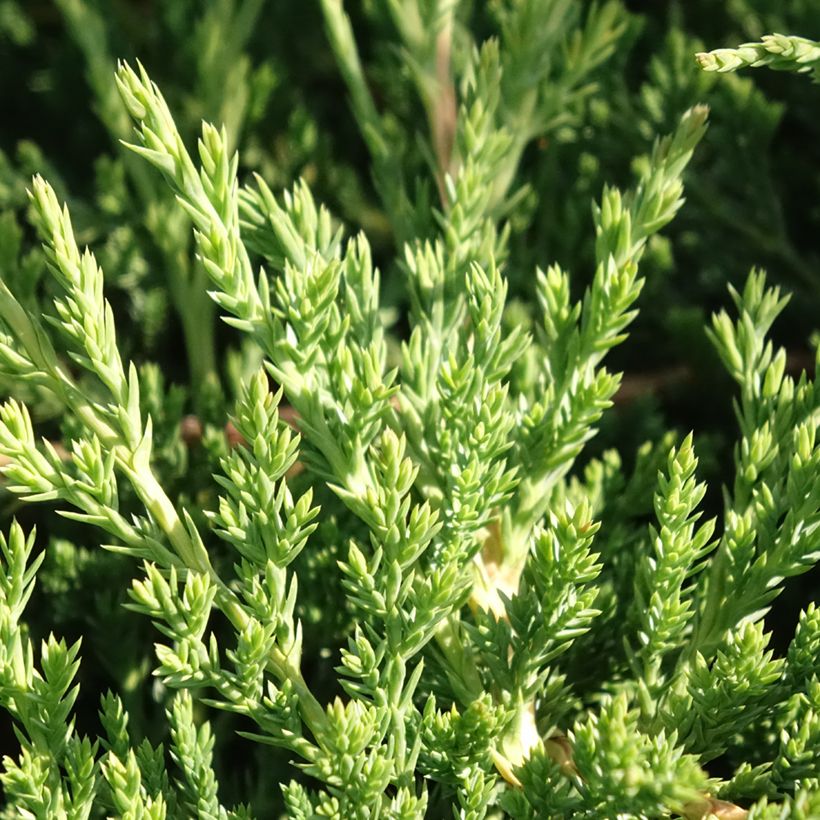

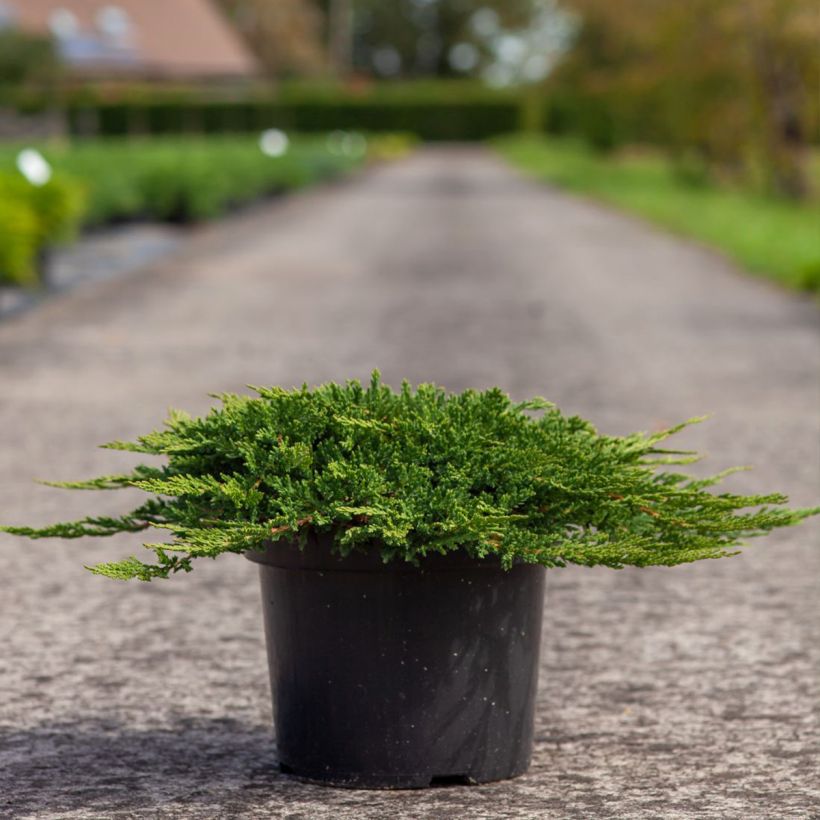

Plant habit
Foliage
Safety measures
Botanical data
Juniperus
horizontalis
Prince Of Wales
Cupressaceae
Creeping Juniper, Creeping Cedar, Creeping Savin
Cultivar or hybrid
atteinterespiratoire
Cette plante peut entraîner des symptômes allergiques.
Evitez de la planter si vous ou vos proches souffrez de rhinite saisonnière ("rhume des foins").
Davantage d'informations sur https://plantes-risque.info
Other Juniperus - Juniper
Planting and care
Plant from September to November and from February to April in well-drained, light, even limestone and poor soil. A rocky or sandy soil that is occasionally dry does not bother it. It will also grow in neutral soil, or even slightly acidic, as it is very adaptable. Choose a very sunny or semi-shaded location sheltered from prevailing winds. Soak the root ball well in a bucket of water before planting and water after positioning the plant and filling the planting hole. Apply organic matter at planting. Water in the first few years, and during prolonged drought. Apply special conifer fertiliser every year in April and weed the soil in summer. This very hardy conifer cannot tolerate heavy soils that are waterlogged in winter.
Pruning is not necessary as this plant expresses its full potential when allowed to grow freely. If necessary, prune between June and September by cutting back the young shoots.
Planting period
Intended location
Care
-
, onOrder confirmed
Reply from on Promesse de fleurs
Foolproof Shrubs
Haven't found what you were looking for?
Hardiness is the lowest winter temperature a plant can endure without suffering serious damage or even dying. However, hardiness is affected by location (a sheltered area, such as a patio), protection (winter cover) and soil type (hardiness is improved by well-drained soil).

Photo Sharing Terms & Conditions
In order to encourage gardeners to interact and share their experiences, Promesse de fleurs offers various media enabling content to be uploaded onto its Site - in particular via the ‘Photo sharing’ module.
The User agrees to refrain from:
- Posting any content that is illegal, prejudicial, insulting, racist, inciteful to hatred, revisionist, contrary to public decency, that infringes on privacy or on the privacy rights of third parties, in particular the publicity rights of persons and goods, intellectual property rights, or the right to privacy.
- Submitting content on behalf of a third party;
- Impersonate the identity of a third party and/or publish any personal information about a third party;
In general, the User undertakes to refrain from any unethical behaviour.
All Content (in particular text, comments, files, images, photos, videos, creative works, etc.), which may be subject to property or intellectual property rights, image or other private rights, shall remain the property of the User, subject to the limited rights granted by the terms of the licence granted by Promesse de fleurs as stated below. Users are at liberty to publish or not to publish such Content on the Site, notably via the ‘Photo Sharing’ facility, and accept that this Content shall be made public and freely accessible, notably on the Internet.
Users further acknowledge, undertake to have ,and guarantee that they hold all necessary rights and permissions to publish such material on the Site, in particular with regard to the legislation in force pertaining to any privacy, property, intellectual property, image, or contractual rights, or rights of any other nature. By publishing such Content on the Site, Users acknowledge accepting full liability as publishers of the Content within the meaning of the law, and grant Promesse de fleurs, free of charge, an inclusive, worldwide licence for the said Content for the entire duration of its publication, including all reproduction, representation, up/downloading, displaying, performing, transmission, and storage rights.
Users also grant permission for their name to be linked to the Content and accept that this link may not always be made available.
By engaging in posting material, Users consent to their Content becoming automatically accessible on the Internet, in particular on other sites and/or blogs and/or web pages of the Promesse de fleurs site, including in particular social pages and the Promesse de fleurs catalogue.
Users may secure the removal of entrusted content free of charge by issuing a simple request via our contact form.
The flowering period indicated on our website applies to countries and regions located in USDA zone 8 (France, the United Kingdom, Ireland, the Netherlands, etc.)
It will vary according to where you live:
- In zones 9 to 10 (Italy, Spain, Greece, etc.), flowering will occur about 2 to 4 weeks earlier.
- In zones 6 to 7 (Germany, Poland, Slovenia, and lower mountainous regions), flowering will be delayed by 2 to 3 weeks.
- In zone 5 (Central Europe, Scandinavia), blooming will be delayed by 3 to 5 weeks.
In temperate climates, pruning of spring-flowering shrubs (forsythia, spireas, etc.) should be done just after flowering.
Pruning of summer-flowering shrubs (Indian Lilac, Perovskia, etc.) can be done in winter or spring.
In cold regions as well as with frost-sensitive plants, avoid pruning too early when severe frosts may still occur.
The planting period indicated on our website applies to countries and regions located in USDA zone 8 (France, United Kingdom, Ireland, Netherlands).
It will vary according to where you live:
- In Mediterranean zones (Marseille, Madrid, Milan, etc.), autumn and winter are the best planting periods.
- In continental zones (Strasbourg, Munich, Vienna, etc.), delay planting by 2 to 3 weeks in spring and bring it forward by 2 to 4 weeks in autumn.
- In mountainous regions (the Alps, Pyrenees, Carpathians, etc.), it is best to plant in late spring (May-June) or late summer (August-September).
The harvesting period indicated on our website applies to countries and regions in USDA zone 8 (France, England, Ireland, the Netherlands).
In colder areas (Scandinavia, Poland, Austria...) fruit and vegetable harvests are likely to be delayed by 3-4 weeks.
In warmer areas (Italy, Spain, Greece, etc.), harvesting will probably take place earlier, depending on weather conditions.
The sowing periods indicated on our website apply to countries and regions within USDA Zone 8 (France, UK, Ireland, Netherlands).
In colder areas (Scandinavia, Poland, Austria...), delay any outdoor sowing by 3-4 weeks, or sow under glass.
In warmer climes (Italy, Spain, Greece, etc.), bring outdoor sowing forward by a few weeks.


































